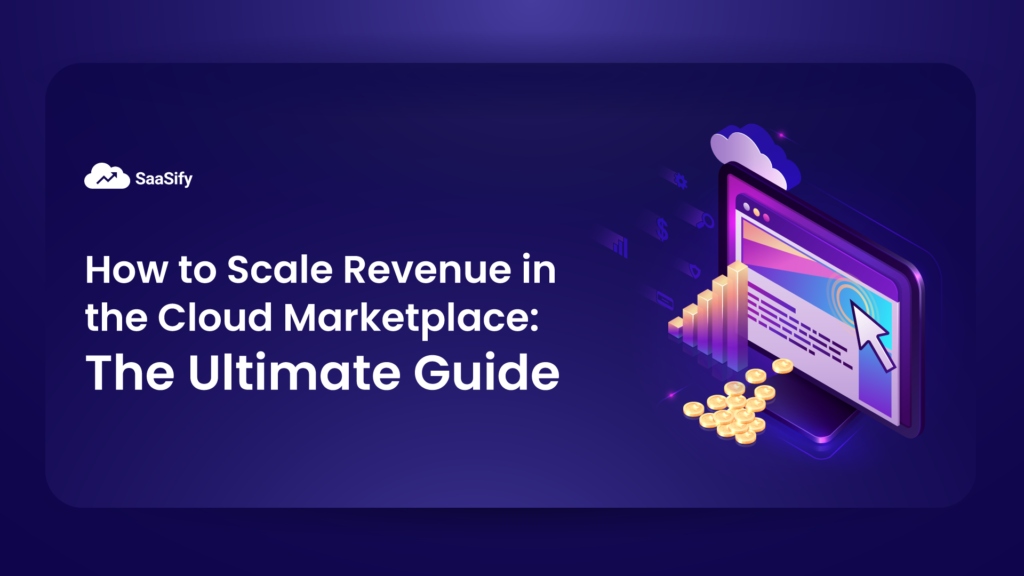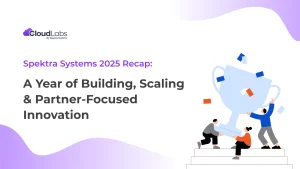As an enterprise ISV, chances are high that you started selling in the Cloud Marketplace to capitalize on the already committed spends of your existing and potential customers. However, to continue your journey with a myopic objective is likely to stand in the way of your growth. There are several opportunities that you can explore to scale revenue in the Cloud Marketplace. The fact that you have established a presence in the marketplace definitely helps your case here. You are now ready to embark on the next phase of your growth.
In our experience of working with ISVs, we have identified 6 major ways in which you can scale your revenue growth. These best practices have been time and again adopted by major enterprise ISVs to scale revenue in the cloud marketplace and impact their bottom line by augmenting their focus on this alternative sales channel. Explore these 6 practices in detail to grow your revenue today.
1. Leverage co-selling opportunities
One of the top ways to scale revenue in the Cloud Marketplace is to leverage co-selling opportunities. Put simply, co-selling is a business association between ISVs and cloud providers, where each one brings their own expertise to the table to facilitate mutual benefit. Here, your cloud provider will help you gain the right visibility amongst potential customers to boost your sales, share leads, and much more. While the onus of the conversion of the sale lies on you, getting the right exposure and visibility on the forefront can open several doors for you.
However, to get the opportunity to co-sell with your cloud provider, you need to show and prove your caliber as an ISV. with the potential to help them get greater consumption of their cloud space. Each cloud provider will have a different process and policy for co-selling. To leverage maximum benefit, conduct in-depth research on co-selling opportunities and concentrate your efforts towards the same.
To start your co-selling journey, there are certain requirements that you need to take care of:
- Become a co-sell ready partner: There are certain technical and operational aspects that you need to have in place before you start co-selling. There are facets of readiness to ensure your selling quota as an ISV matches the requirements. Also, there are certain agreements that must be complete to ensure co-selling. Check out the requirements that you as an ISV must be compliant with for your cloud provider(s).
- Make your offer co-selling ready: You also need to ensure that your solution or offer that you seek to co-sell is ready and meets the requirements. Your cloud provider will require certain collaterals and marketing materials to enhance your visibility. Therefore, having a pitch deck, an explanation one-pager, a demo guide, etc. is important. Again, check out what your cloud provider requires from your offers.
You can learn more about co-selling here.
2. Identify longer term contracts
Signing longer term or multi-year contracts with your customers can definitely help you scale revenue in the cloud marketplace. While in the conventional sales channels, getting long term contracts can be slightly challenging as customers might be apprehensive about multi-year commitments, given the uncertainty of the markets today. However, selling in the cloud marketplace helps you achieve this to a certain extent. This is especially true when your customers have large amounts of committed spends which are unutilized and are likely to expire soon.
To capitalize on this, you need to focus on building relationships with your customers on a deeper level. Simply a transactional relationship will not suffice if you want to get a window into their future plans, etc. When you engage with them more, you will get a broad picture of what their committed spend looks like and what buffer they have which you can leverage. Depending on the same, you can offer special deals or discounts on multi-year contracts. Even if your margin decreases slightly, realizing revenue at an accelerated pace will impact your bottom line in a more pronounced manner.
3. Open your options
You must be familiar with the notion that the more places you sell at, the more sales revenue you will be able to generate. Today, there exist three major Cloud Marketplaces and if you are looking for ways to scale revenue in the cloud marketplace, capitalizing on all of them is very important. As an enterprise ISV, your customers can be on any one of the marketplaces and if you limit your presence to only one, you may end up missing out on some big deals.
However, just because having a presence and selling on all available options can help scale your revenue doesn’t mean you start building your presence without thinking it through. There are several costs and resources required for each cloud marketplace. Furthermore, the expertise to ace your game for each can be different. Therefore, you need to make a calculated move where you are actually able to make more than what you end up spending.
If you are worried about the costs, resources and expertise of selling on multiple cloud marketplaces, you can partner with SaaSify. It can make your journey seamless with its zero engineering platform to help you create a presence on all top cloud marketplaces within a week.
4. Upskill your teams
Selling in the cloud marketplace is significantly different from the other conventional sales channels. On the one hand, the way your team is supposed to sell, communicate, service, etc. is drastically different. On the other hand, the incentives and margins on each sale can also be quite distinct when compared to other channels. Therefore, you need to ensure that your team is prepared to sell effectively if you seek to scale revenue in the cloud marketplace. There are multiple aspects at play here.
First, focus on upskilling your sales, marketing as well as servicing teams to ensure that their techniques are aligned with those that are accepted by the marketplace customers. Here resources, certifications and workshops by your cloud provider can be very important. Since each marketplace is slightly different, ensure that your team members have adequate knowledge of one where their sales are focused. Second, you need to rethink your incentives and commission structures.
Following a conventional approach might lead to a situation where your sales team ends up getting a lower commission than what they received through conventional channels. In such a situation, either they will be demotivated and will not perform to their level, or they will direct more sales towards the conventional channels which might create customer friction, delayed payments and shorter contracts.
Whatever the case maybe, you need to provide a conducive environment with the right tools, resources, skills and incentive structures to your team members to achieve more sales and scale revenue in the cloud marketplace.
5. Focus on private offers and pricing
In the cloud marketplace, you have the option of choosing between private and public offers. Under private offers, you have the option of customizing everything for your customers based on their needs and quote a price accordingly. Focusing on private offers can be a good way to scale revenue in the cloud marketplace as you can charge a little more for the customization.
Furthermore, you can get a bit creative on the pricing front to scale your revenue. For instance, offering freemium subscriptions, trial packages, pay as you go options, etc. can be very lucrative to get your customers started and build credibility. Once that stickiness builds, you can scale revenue in the cloud marketplace with an exponential increase.
6. Leverage GTM benefits by cloud providers
Finally, you must focus on leveraging the go-to-market benefits provided by your cloud marketplace to the fullest. This would require doing a little bit of research to understand what are the types of benefits you are eligible for and how you can leverage them. For instance, you can leverage the listing optimization support, or the featured category placement to increase your search visibility. Similarly support on press releases and what’s new blogs by your cloud provider can help you get greater exposure. Whatever the case may be, you should focus on leveraging these benefits to the maximum extent possible to scale revenue in the cloud marketplace.
Accelerate your revenue with SaaSify
To scale revenue in the cloud marketplace, it might be a good idea to collaborate with some expert platforms in the field. There are many aspects of selling in the marketplace that might require experience, expertise and are also cost intensive. However, if you get external support towards the same, your costs will come down significantly and it will also add efficiency to your whole functioning, both of which are important for scaling revenue.
Here, you can partner with SaaSify which can not only help you set up your SaaS sales in the cloud marketplace in a week, but can also enable billing, provisioning, management, monitoring, reselling, administration and much more. You can even get your own branded landing page with SaaSify to create a brand recall, which is critical for scaling revenue.
Once you get in the cloud marketplace, you have a global customer base that you can sell to. Leveraging the 6 practices mentioned above can help you in not only sustaining your operations because it was a customer need, but actually scale revenue in the cloud marketplace. Leveraging external support from SaaSify will help you in building a thriving presence in cloud marketplaces by providing you all the necessary tools and integrations to simplify selling on marketplaces and drive business growth. Book a demo today
This blog was originally published on SaaSify



















